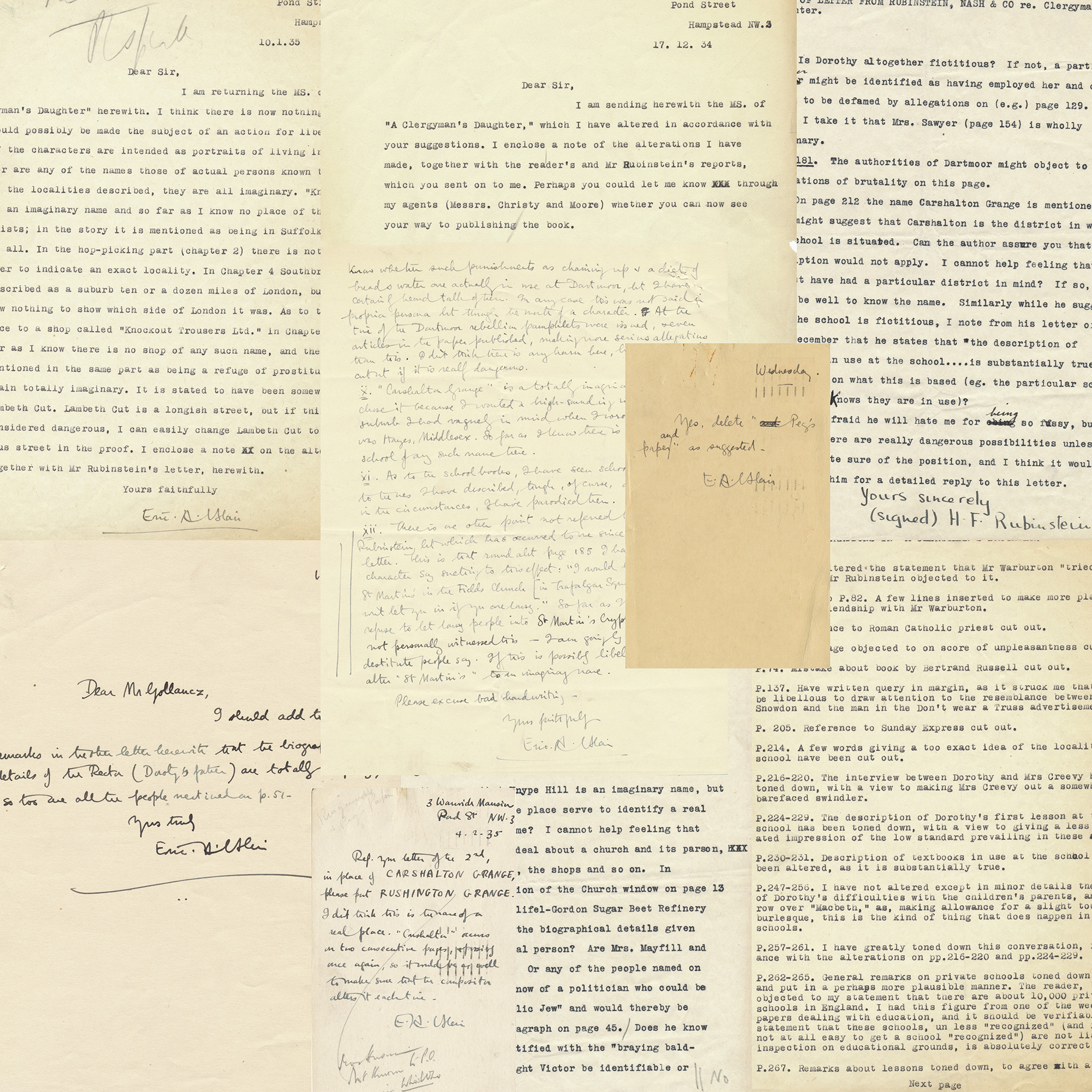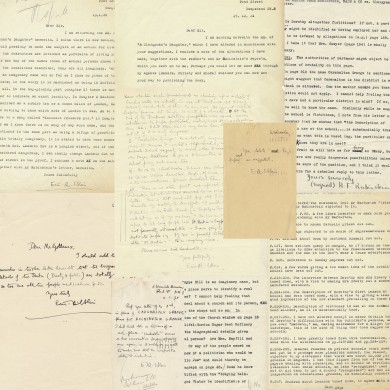Publisher's Archive of Correspondence Relating to a Clergyman's Daughter
AN ARCHIVE OF CORRESPONDENCE BETWEEN VICTOR GOLLANCZ AND GEORGE ORWELL RELATING TO THE PUBLICATION OF A CLERGYMAN'S DAUGHTER

1934.
30 items, comprising six letters by Orwell (two TLS, two ALS, two APS), five further TLS, the original publishing contract, two reader's reports and seven carbons. Including: initial enthusiastic reader's report arguing "on literary merit I think it certainly ought to be published"; Rubinstein's report on the book requesting changes on account of the threat of libel; correspondence between Gollancz and Moore regarding changes to the school section; Orwell's cover note to his corrected manuscript addressing Gollancz's concerns hoping he "can now see your way to publishing the book"; correspondence between Gollancz and Rubinstein regarding potential libel; Orwell's defence of his manuscript against requests for additional changes "there is nothing now in it what could possibly be made the subject of an action for libel"; further correspondence, including a lengthy autograph letter by Orwell defending the book, a second, shorter letter from him on the same subject, and short notes back and forth on the same subject; the original contract signed by Orwell for publication of the book, offering Gollancz the option on his next two books.
Victor Gollancz's archived correspondence regarding the publication of George Orwell's first novel, A Clergyman's Daughter, including the original contract for the novel.
In a development from the arrangement for the publication of Down And Out In Paris And London, there is a direct and sustained correspondence between Orwell and Victor Gollancz as they prepared and amended the novel. This is principally because of the changes requested by Gollancz's solicitor in light of the propensity of libel cases in 1930s publishing.
Accordingly, the letters from Orwell here are centred on changes to the manuscript and show a reluctance to tamper more than necessary in what was already an experimental work. Indeed, after his second round of requested amendments Orwell is quite certain that all worry about libel must surely be squashed, though as it turns out there would be several further sets of changes demanded to, from Orwell's perspective, increasingly inconsequential details.
Gollancz's persistence in his concerns about libel, to almost a paranoid degree, is illustrative of the publishing world of the 1930s. Equally, Orwell's resistance to what he saw as trivial impediments to the artistic process would only become more entrenched as their relationship continued, following the two book option added on to the publishing contract for this novel.
Such a significant amount of manuscript material by Orwell on a single literary subject is most uncommon in commerce.
Stock ID: 39395
Sold
We have sold this item, but similar items
may become available in the future























